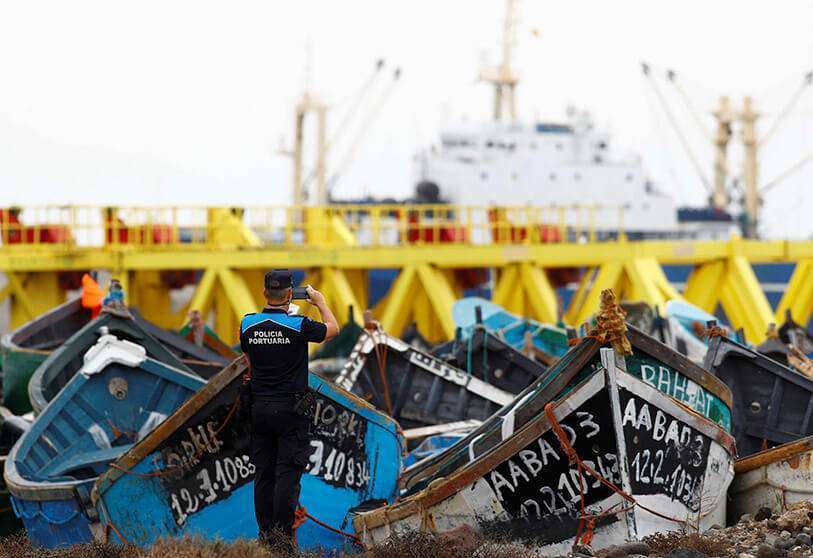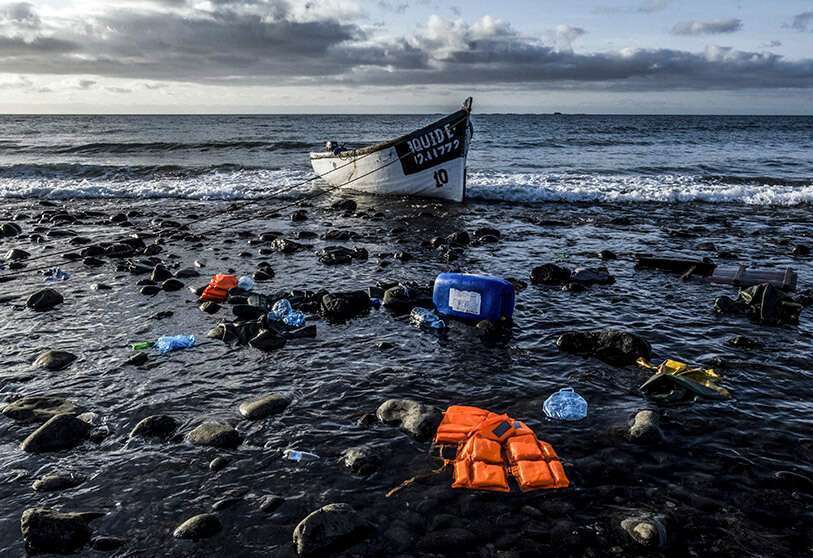España-Marruecos, perspectivas para el encuentro entre dos naciones amigas

Rabat will host the 12th Moroccan-Spanish high-level meeting on December 17. The last such meeting was held in 2015 in the Spanish capital and attested to the mutual interest in maintaining good neighbourly relations.
Morocco is Spain's second customer outside the European Union (EU), after the United States. Geographical proximity has made it the leading trading partner of the North African regions (60 percent of Spain's total exports to the region were to Morocco), and up to 45 percent of total exports to Africa are destined for the Alaouite kingdom.

Morocco is Spain's second customer outside the European Union (EU), after the United States. Geographical proximity has made it the leading trading partner of the North African regions (60 percent of Spain's total exports to the region were to Morocco), and up to 45 percent of total exports to Africa are destined for the Alaouite kingdom.
Spain is no less for Morocco. It is its first customer in the world, closely followed by France. Europe is an important pole for the Moroccan economy and vice versa. It has had an Association Agreement with the European Union since 2000 and an Advanced Statute since 2008, the first country to enjoy this privileged framework of political, economic and social relations.

Given the reciprocal importance on both sides of the Strait of Gibraltar, new but also old conflicts or frictions will surround this 12th meeting between kingdoms. The Atlantic Ocean will be the main focus of the agenda: migration and Western Sahara, fundamentally.
Undoubtedly, migratory movements from Atlantic Africa to the Canary Islands is one of the issues of greatest concern to Spain. This was evident after the extensive ministerial deployment between the Canary Islands, Morocco and Senegal.
Nearly 20,000 people have already arrived on the Canary Islands' coasts this year via the Atlantic route to Europe. Originating on the Moroccan, Saharan, Mauritanian, Senegalese or Gambian coasts, the influx of people on the route has increased by more than 1,000 per cent compared to the same dates last year.
The Spanish government has had two main objectives: deportations to countries of origin and strengthening border security in those nations. The first objective has been cut short by border closures due to the current COVID-19 pandemic. The second has already been activated with a visit to Morocco by the Minister of the Interior, Fernando Grande-Marlaska, and the Minister of Foreign Affairs, Arancha González Laya, to Senegal on November 20.
Since 2006 there has been cooperation in this respect between the European Union and West African countries, with a certain proximity to the Canary Islands, and funds devoted mainly to the coast guards to stem the migratory flow.

Spain currently devotes a total of 45.9 million euros to this purpose, which has tripled during Fernando Grande-Marlaska's term of office, according to El País. The Guardia Civil, for example, has several coordination centres on foreign territory, such as Mauritania and Senegal.
Nearly half of the migrants who have arrived on the Canary Islands' coasts are young Moroccans, according to information disseminated by the media - since the Interior Ministry has not provided any data - who have been economically affected by the pandemic.
After the meeting between Marlaska and Moroccan counterpart Abdelouafi Laftit on November 20 it is obvious that Morocco has become an essential player in stopping irregular migration flows.
After jumping onto the international media agenda following the blockade of the El Guerguerat pass on the border between Western Sahara and Mauritania, the Polisario Front ended the ceasefire agreed in 1991 with Morocco. Not only does this make the Sahara a sensitive issue for Spain, but also the Moroccan interests gathered in the new port of Dakhla or the Canary Islands' underwater mountains, together with the importance of the Saharan bank to European fisheries.
Firstly, Spain has always defended the UN resolutions on the independence of Western Sahara. However, the silence of the Spanish administrations with respect to the responsibilities still attributed to it over the territory-the UN maintains Spain as an administrative power-and the disclosure of diplomatic cables in 2007 between Spain, France, Morocco and the United States to promote Saharan autonomy within the kingdom of Morocco they make the Spanish position more complex than simply accepting United Nations resolutions, which for five years have no longer advocated a referendum on self-determination, but rather a political, peaceful and negotiated solution between the parties.
Furthermore, relations between kingdoms on both sides of the straits could be marked by Spain's and EU's final stance on the Sahara. As stated earlier, immigration is a sensitive issue to which Morocco, as a country of departure, holds the key.
Moreover, both Spain and the EU have strong interests in the fisheries they carry out off the Saharan and Mauritanian coasts. The Saharan bank is very important for the EU as it is the one that allocates the most resources to fishing. It has therefore agreed to pay EUR 61 million per year to Mauritania and EUR 50 million to Morocco in exchange for European vessels fishing off its coast.
Spain is one of the main European fishing fleets, both in terms of number of vessels (8,000) and capacity (332,000). Those allowed to fish catch 90% of the fish in Saharan waters. A non-autonomous territory, occupied, as the UN considers, and the Great Southern Region, as the Kingdom of Morocco states under its territorial organisation.

Both migration and fisheries are major concerns for European countries. However, they are not the only ones. Particularly sensitive for Spain is the construction of the new port of Dakhla Atlantique, 400 kilometres from the Canary Islands' ports of Las Palmas and Santa Cruz de Tenerife, with a capacity similar to that of the latter and which would mean competition in the area's container traffic.
In addition, Tropic Seamount mineral deposits located over 250 nautical miles from the island of El Hierro prompted Spain to apply to the UN for extension over territories to 350 nautical miles. Morocco has also requested that the underwater platform in the Western Sahara should be extended to 350 nautical miles, as a dispute for the marine control of submarine resources.
In any event, both Morocco and Spain are immersed in several issues which require negotiations between kingdoms. Morocco holds the key to the migrations and large fishing resources that are of interest to the EU and particularly, due to its proximity, to Spain. Large amounts of money have been used as currency, but the reactivation of the conflict in the Sahara could alter relations with the Alaouite kingdom, depending on Spain's position.








